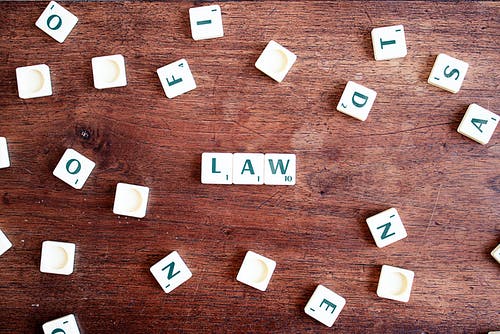Attorney R. Jerome Andries
If you have children and are researching estate planning in Louisiana, there’s a good chance you’ve come across the term “Forced Heir” and have some questions. Louisiana law is different than all other states and have developed a body of law that uses many uncommon terms.
There is a lot of misconceptions regarding forced heirs in Louisiana law. It’s an important concept because it directly impacts your estate and what you can do with your own estate. Your estate is made up of multiple parts and can include movable and immovable property such as vehicle, homes, bank accounts, investments, insurance policies, antiques, guns and more. Hopefully by now you’ve put some thought into what you intend to do with your property when you die.
- Related: Our Louisiana Succession Guide and Checklist
We all die one day and you either need to have a valid will in place or simply rely on the State of Louisiana dictating what happens to your property. If you’re like most Louisianians – you don’t exactly want to rely on state laws passing out your property without your direction. A Last Will and Testament, otherwise known as a “Will” is the way to tell the court system what you want to happen with your property when you die. You can normally do whatever you want with your property and leave it to whoever you want unless you have forced heirs.
Louisiana has enacted a body of law that protects these individuals known as forced heirs and provides for them through your estate. Even if you properly execute a will and decide to not leave anything to your forced heirs, they can have your will invalidated. If you’re unsure if you have forced heirs, here’s a quick rundown to determine if you have them:
Louisiana Civil Code Article 1493 explains, “Forced heirs are descendants of the first degree who, at the time of the death of the decedent, are twenty-three years of age or younger or descendants of the first degree of any age who, because of mental incapacity or physical infirmity, are permanently incapable of taking care of their persons or administering their estates at the time of death of the decedent….”
There is much more to the article, but this will help you identify if you have forced heirs. Basically, forced heirs are:
- Children (can be adult children also), who;
- Are twenty-three years or younger when you die; or
- Any age when you die, but have a mental incapacity or physical infirmity;
- That prevents them from taking care of themselves or their estates permanently.
It’s a common misconception that you can “Write the kids out of the will” in Louisiana. In some instances, you absolutely can, but not if they happen to be forced heirs. Like stated previously, even if you cut them out of the will, they can still petition the court to prove they are in fact forced heirs and still receive their share of your estate.
What Happens If A Forced Heir Dies Before I Do?
This is a great question and the law has an answer: La. C. C. Art. 1493 cont’d, “When a descendant of the first degree predeceases the decedent, representation takes place for purposes of forced heirship only if the descendant of the first degree would have been twenty-three years of age or younger at the time of the decedent’s death….”
This portion of the code article basically states that if your child dies before you do and would have qualified for forced heirship, then representation takes place. Representation is when the law allows someone else to step into the shoes of the deceased forced heir and claim their inheritance. However, just because a child dies before you, doesn’t mean representation will take place. It only happens if your child would have been under 23 years of age or younger when you die and you could theoretically outlive this time period.
“However, when a descendant of the first degree predeceases the decedent, representation takes place in favor of any child of the descendant of the first degree, if the child of the descendant of the first degree, because of mental incapacity or physical infirmity, is permanently incapable of taking care of his or her person or administering his or her estate at the time of the decedent’s death, regardless of the age of the descendant of the first degree at the time of the decedent’s death.”
There is another caveat – if your child dies before you and you outlive the time period for them to be considered a forced heir, representation (stepping in shoes) could still take place if your child had a child that would qualify for forced heirship due to a mental incapacity or physical infirmity and is forever incapable of taking care of themselves or their estate at the time of the decedent’s (your) death.
This is an incredibly complex area of law and you should speak with an experienced estate planning attorney in Louisiana as soon as possible.
How Can You Get Rid of a Forced Heir
You can disinherit a forced heir if there is just cause to do so. Louisiana Civil Code Article 1494 explains, “A forced heir may not be deprived of the portion of the decedent’s estate reserved to him by law, called the legitime, unless the decedent has just cause to disinherit him or her.”
The only way to remove a forced heir is to have them disinherited and you must have a specific reason to that the law allows. Here’s an article that explains how to disinherit an heir in Louisiana.
How Much of My Estate Does My Forced Heir Get?
The law is specific as to how much your forced heir or heirs may receive from your estate. Obviously, you are entitled to give them more, but the law sets a minimum that you must give them when you die. Louisiana Civil Code Article 1495 tell us that, “Donations inter vivos and mortis causa may not exceed ¾ of the property of the donor if he leaves, at this death, one forced heir, and ½ if he leaves, at his death, two or more forced heirs….”
In short:
- 1 forced heir – you cannot donate more than ¾ of your property;
- 2 or more forced heirs – you cannot donate more than ½ of your property.
You can always give your forced heirs more of your estate, but these are the minimums set by law. This law provides forced heirs with protection against being cut out of the estate, but can also be frustrating for those who wish to leave their estate for someone else.
The part of your estate reserved for your forced heir or heir is known as the “Forced portion” and the rest is the “Disposable portion.” An easy way to remember this is you are forced to give a portion and allowed to dispose or do whatever you want with the rest.
What Happens If I Don’t Have a Forced Heir or Heirs
You can do pretty much anything you want with your estate. You can donate or give away all of your property and don’t have to reserve any portion for anyone else.
Can I Donate Property While I’m Alive If I Have Forced Heirs
You can, but not beyond the imposed limitations if you have forced heirs. Even if you try to donate it while you are still living, the law states that your estate is still responsible for the forced portion. “Donations inter vivos and mortis causa may not exceed…” this means you cannot donate above and beyond that portion during your life or after you die.
Usufruct of Surviving Spouse and Forced Heirs
There’s a good chance you could end up in a situation where you have both a surviving spouse and forced heirs. You may be concerned about what will happen to your spouse and whether they can keep the property when your forced heirs try to take their portion of the estate. The law provides a protection for your surviving spouse.
Louisiana Civil Code Article 1499 tells us that, “The decedent may grant a usufruct to the surviving spouse over all or part of his property, including the forced portion, and may grant the usufructuary the power to dispose of nonconsumables as provided in the law of usufruct. The usufruct shall be for life unless expressly designated for a shorter period, and shall not require security except as expressly declared by the decedent or as permitted when the legitime is affected. A usufruct over the legitime in favor of the surviving spouse is a permissible burden that does not impinge upon the legitime, whether it affects community property or separate property, whether it is for life or a shorter period, whether or not the forced heir is a descendant of the surviving spouse, and whether or not the usufructuary has the power to dispose of nonconsumables.”
In short, you are allowed to grant your surviving spouse a usufruct or “Use” of your property, even if it’s part of the forced portion.

Louisiana Estate Planning Lawyer
R. Jerome Andries, Andries Law Firm, LLC
(318) 269-5857
Jerome@AndriesLawFirm.com
“Louisiana’s Virtual Succession Attorney”
Disclaimer: This blog post is not intended to provide legal advice. The law changes and you should contact an attorney for legal advice.
